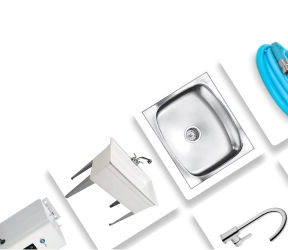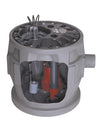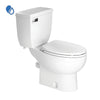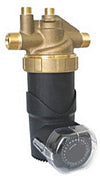
Stay Cool and Save Energy: Tips for Efficient Air Conditioning in Summer
As the summer sun blazes outside, we all find solace in the cool comfort of our air-conditioned homes. While air conditioning provides much-needed relief from the scorching heat, it can also lead to skyrocketing energy bills. The good news is that you can stay cool while also being energy-efficient. In this article, we'll delve into a range of tips to help you keep your home comfortably chilled without draining your wallet.
1. Optimize Your Thermostat:
One of the most effective ways to save energy with your air conditioning is by setting your thermostat wisely. Keep your thermostat at the highest comfortable temperature, ideally around 78°F (25.5°C). Each degree you raise the thermostat can save you about 3-5% on cooling costs. Additionally, consider using a programmable thermostat to adjust temperatures when you're not at home, ensuring your AC isn't working unnecessarily.
2. Embrace Natural Ventilation:
Before the sun rises and after it sets, take advantage of cooler outdoor temperatures by opening windows and allowing natural cross-ventilation to cool your home. Place fans strategically to direct fresh air indoors and hot air out. This natural breeze can significantly reduce the need for air conditioning during the milder parts of the day.
3. Keep Sunlight at Bay:
Direct sunlight can turn your home into an oven. Close blinds, curtains, or shades during the sunniest parts of the day to prevent excess heat from entering. You could also consider installing reflective window film to reduce the amount of heat that comes through your windows.
4. Maintain Your Cooling System:
A well-maintained air conditioning system operates more efficiently, saving energy and extending its lifespan. Regularly change or clean your air filters (monthly or as recommended by the manufacturer) to ensure proper airflow. Schedule professional maintenance annually to clean coils, check refrigerant levels, and ensure all components are functioning optimally.
5. Utilize Fans Strategically:
Ceiling fans are a great asset in the summer. They don't cool the air, but they create a wind-chill effect that makes you feel cooler. By using fans in conjunction with your AC, you can raise the thermostat setting and still feel comfortable. Remember to turn off fans when you leave the room; they cool people, not spaces.
6. Seal and Insulate:
Proper insulation and sealing of your home are crucial for keeping cool air in and hot air out. Check for gaps and cracks in windows, doors, and walls, and seal them with weather stripping or caulk. Adequate insulation in your attic and walls also prevents heat from infiltrating your living spaces.
7. Cook and Bake Smart:
Cooking and baking can generate a lot of heat, forcing your AC to work harder. On extremely hot days, opt for meals that don't require the use of the oven or stove. Consider grilling outdoors or preparing cold salads. When cooking indoors, use the exhaust fan to expel hot air.
8. Use Energy-Efficient Appliances:
Electronics and appliances can contribute to indoor heat gain. Whenever possible, use energy-efficient appliances that produce less heat. If you're in the market for new appliances, look for the Energy Star label, which indicates products that meet strict efficiency guidelines.
9. Seal Ductwork:
If you have a central air conditioning system, make sure your ductwork is properly sealed. Leaky ducts can lead to significant energy loss, as cooled air escapes before reaching your living spaces. Sealing ducts can improve your system's efficiency and help you save on cooling costs.
10. Consider Zoning:
Zoning systems allow you to cool specific areas of your home rather than the entire space. This can be particularly useful if you have rooms that are rarely used. Zoning can help you target your cooling efforts where they're most needed, thus conserving energy.
11. Opt for Energy-Efficient AC Units:
If it's time to upgrade your air conditioning system, consider investing in a more energy-efficient model. Look for units with a high Seasonal Energy Efficiency Ratio (SEER) rating. Higher SEER ratings indicate greater efficiency and lower energy consumption.
12. Plant Shade and Trees:
Strategically planting trees and shrubs around your home can provide natural shade, reducing the amount of sunlight that reaches your windows and walls. This can significantly cool down your home and reduce the load on your air conditioning system.
Implement These Energy-Saving Tips tp Keep Your Home Cool This Summer
Staying cool during the summer doesn't have to come at the cost of exorbitant energy bills. By implementing these energy-saving tips, you can keep your home comfortably cool while also reducing your environmental footprint and saving money. From optimizing your thermostat settings to utilizing natural ventilation and making wise appliance choices, these strategies will help you enjoy a refreshing summer without the worry of skyrocketing energy costs. So, embrace these energy-efficient practices and make your summer a cool, comfortable, and budget-friendly one!
1. Optimize Your Thermostat:
One of the most effective ways to save energy with your air conditioning is by setting your thermostat wisely. Keep your thermostat at the highest comfortable temperature, ideally around 78°F (25.5°C). Each degree you raise the thermostat can save you about 3-5% on cooling costs. Additionally, consider using a programmable thermostat to adjust temperatures when you're not at home, ensuring your AC isn't working unnecessarily.
2. Embrace Natural Ventilation:
Before the sun rises and after it sets, take advantage of cooler outdoor temperatures by opening windows and allowing natural cross-ventilation to cool your home. Place fans strategically to direct fresh air indoors and hot air out. This natural breeze can significantly reduce the need for air conditioning during the milder parts of the day.
3. Keep Sunlight at Bay:
Direct sunlight can turn your home into an oven. Close blinds, curtains, or shades during the sunniest parts of the day to prevent excess heat from entering. You could also consider installing reflective window film to reduce the amount of heat that comes through your windows.
4. Maintain Your Cooling System:
A well-maintained air conditioning system operates more efficiently, saving energy and extending its lifespan. Regularly change or clean your air filters (monthly or as recommended by the manufacturer) to ensure proper airflow. Schedule professional maintenance annually to clean coils, check refrigerant levels, and ensure all components are functioning optimally.
5. Utilize Fans Strategically:
Ceiling fans are a great asset in the summer. They don't cool the air, but they create a wind-chill effect that makes you feel cooler. By using fans in conjunction with your AC, you can raise the thermostat setting and still feel comfortable. Remember to turn off fans when you leave the room; they cool people, not spaces.
6. Seal and Insulate:
Proper insulation and sealing of your home are crucial for keeping cool air in and hot air out. Check for gaps and cracks in windows, doors, and walls, and seal them with weather stripping or caulk. Adequate insulation in your attic and walls also prevents heat from infiltrating your living spaces.
7. Cook and Bake Smart:
Cooking and baking can generate a lot of heat, forcing your AC to work harder. On extremely hot days, opt for meals that don't require the use of the oven or stove. Consider grilling outdoors or preparing cold salads. When cooking indoors, use the exhaust fan to expel hot air.
8. Use Energy-Efficient Appliances:
Electronics and appliances can contribute to indoor heat gain. Whenever possible, use energy-efficient appliances that produce less heat. If you're in the market for new appliances, look for the Energy Star label, which indicates products that meet strict efficiency guidelines.
9. Seal Ductwork:
If you have a central air conditioning system, make sure your ductwork is properly sealed. Leaky ducts can lead to significant energy loss, as cooled air escapes before reaching your living spaces. Sealing ducts can improve your system's efficiency and help you save on cooling costs.
10. Consider Zoning:
Zoning systems allow you to cool specific areas of your home rather than the entire space. This can be particularly useful if you have rooms that are rarely used. Zoning can help you target your cooling efforts where they're most needed, thus conserving energy.
11. Opt for Energy-Efficient AC Units:
If it's time to upgrade your air conditioning system, consider investing in a more energy-efficient model. Look for units with a high Seasonal Energy Efficiency Ratio (SEER) rating. Higher SEER ratings indicate greater efficiency and lower energy consumption.
12. Plant Shade and Trees:
Strategically planting trees and shrubs around your home can provide natural shade, reducing the amount of sunlight that reaches your windows and walls. This can significantly cool down your home and reduce the load on your air conditioning system.
Implement These Energy-Saving Tips tp Keep Your Home Cool This Summer
Staying cool during the summer doesn't have to come at the cost of exorbitant energy bills. By implementing these energy-saving tips, you can keep your home comfortably cool while also reducing your environmental footprint and saving money. From optimizing your thermostat settings to utilizing natural ventilation and making wise appliance choices, these strategies will help you enjoy a refreshing summer without the worry of skyrocketing energy costs. So, embrace these energy-efficient practices and make your summer a cool, comfortable, and budget-friendly one!
Shop Popular Brands
America's Leading
Plumbing Supplies Retailer
Save big on plumbing essentials with
our wholesale prices!









Leave a comment